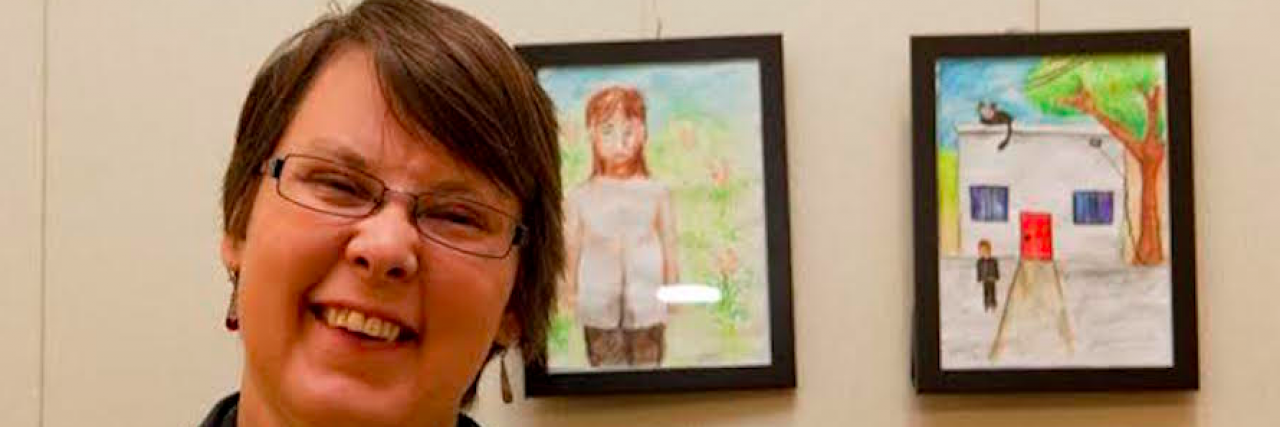Most people I knew when I was young expected me to die or spend the rest of life in institutions. I have a diagnosis of atypical schizophrenia and Asperger‘s syndrome, and had a very troubled early life which involved abuse, drug issues, bullying and self-destructive behavior.
But when I was 26 I decided to change my life. I started on a path which took me through Bachelor’s and Master’s degrees in visual art, publishing an autobiography and eventually landing an amazing job in the Australian public service.
As soon as I joined the public service my life changed completely. I moved in different social circles, bade farewell to my public housing estate neighbors and left a lot of the heavy load of life behind me. I learned about good food and “nice things.” However, there was a negative consequence in the mix, too. I could talk about my Asperger‘s diagnosis because I had written a book about it, but in my mind schizophrenia was another matter entirely.
I struggled to accept the schizophrenia label for a number of reasons. Firstly, the diagnosis came with an immense amount of negative stereotypes. People with schizophrenia were murderers and homeless people, according to the media. There was an autism self-advocacy movement, but I couldn’t find a corresponding one for schizophrenia. People with autism had a long list of positive role models, such as autism and animal rights advocate Professor Temple Grandin and amazing musician Ladyhawke, but the list was considerably shorter for schizophrenia. Even people who could be seen as role models, like mathematics genius John Nash (who inspired the movie “A Beautiful Mind“), were very rarely described as having schizophrenia. Their diagnosis always seemed to be shrouded in mystery with just a little hint of shame. People with schizophrenia weren‘t successful in the popular imagination.
It was almost impossible to feel proud of my mental health diagnosis with all of this weighing down on me. So I decided to hide that particular diagnostic label away, consigning it to a box in the garage and hoping I would never have contact with it ever again. I even stopped seeing my psychiatrist and instead got my medication from my general practitioner. Over time, I forgot I even had an illness. It was part of a distant and horrible life which I had no intention to revisit. But unfortunately, my schizophrenia didn’t forget me. Three years after I joined the ranks of the professional classes, I became incredibly unwell with psychosis.
I had not told anyone in my new world of my illness. I worried people would think I was dangerous or unreliable. But when I started to get unwell I had very little insight and believed all the delusional thoughts and hallucinations were real. Eventually — after many months of confusion and terror — I ended up in hospital. I felt scared to tell my manager about my diagnosis, but I had to in order to get time off of work.
My manager at the time was married to a staffer for a conservative politician. She always looked immaculate and I thought she would react badly to my predicament. But the opposite was true. She was beautiful about it from the very start. She was one of those amazing managers who care deeply for their staff members and all she had in mind was my welfare. I remember when she visited me I was completely addled and terrified I would behave inappropriately. She sat there quietly, telling me stories of people with similar circumstances she knew to put my mind at ease.
Over the next year or so, my manager became my strongest ally. One time I dragged myself into work only to realize that I couldn‘t stand to be there. I was terrified and didn‘t know what to do. I went straight to her office and told her how I was feeling. She dropped everything and drove me to my mental health clinic. I worried she would miss a meeting, but it was evident my welfare was much more important to her than any meeting.
With her care and kindness, my manager helped me overcome the episode of illness. If I hadn‘t opened up to her, I probably would have lost my job. While I thought I would somehow ruin my workplace with the taint of schizophrenia, the opposite was true. Now I’m able to tell my managers and colleagues about both my diagnoses and feel accepted.
Follow this journey on Jeanette’s website.
Image via contributor

